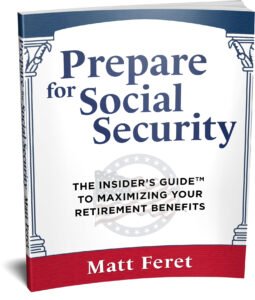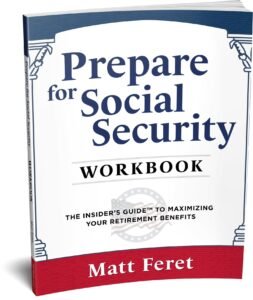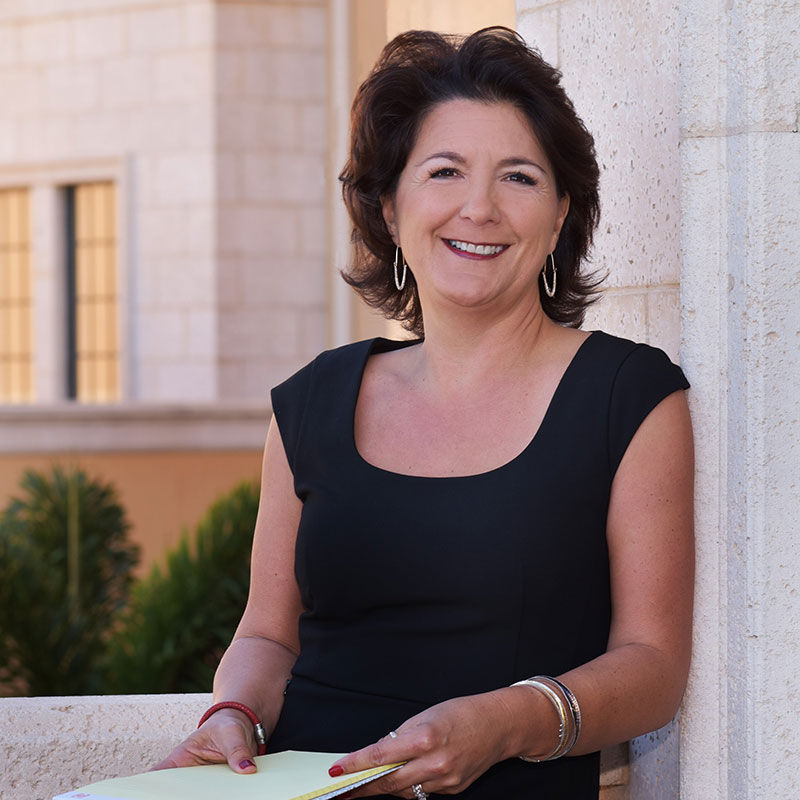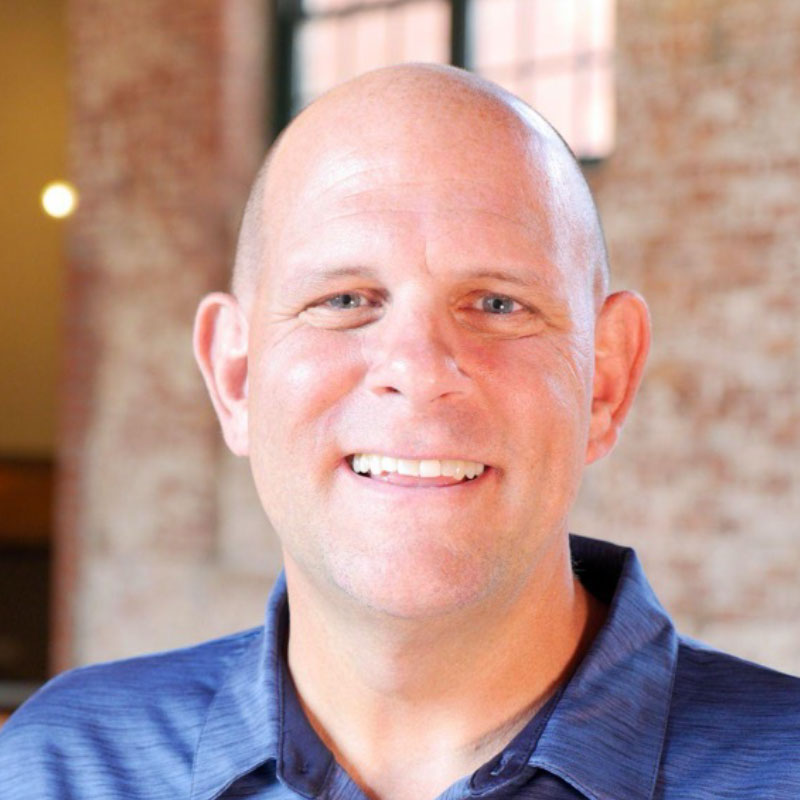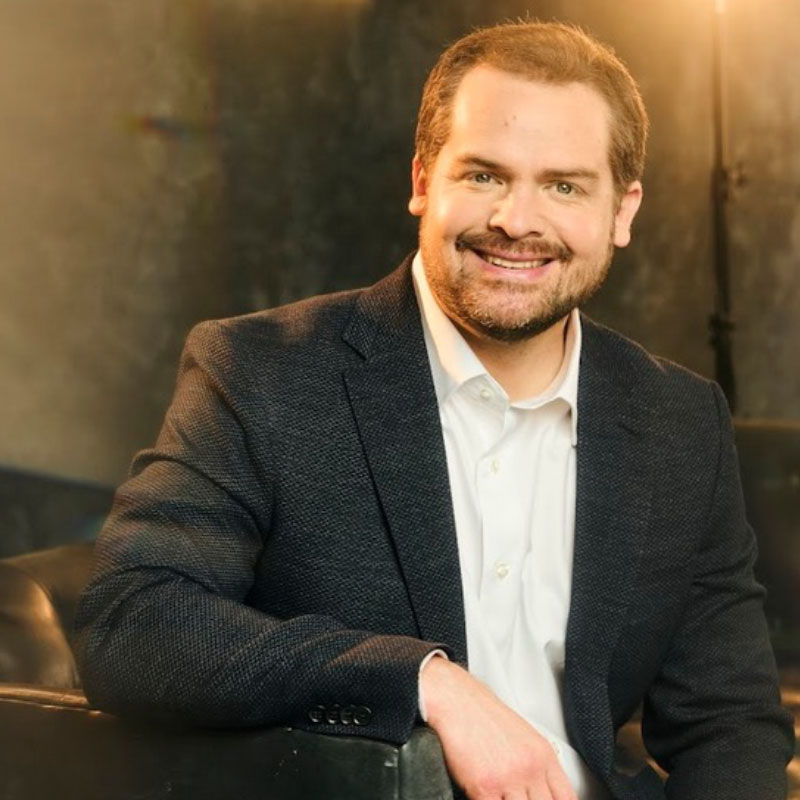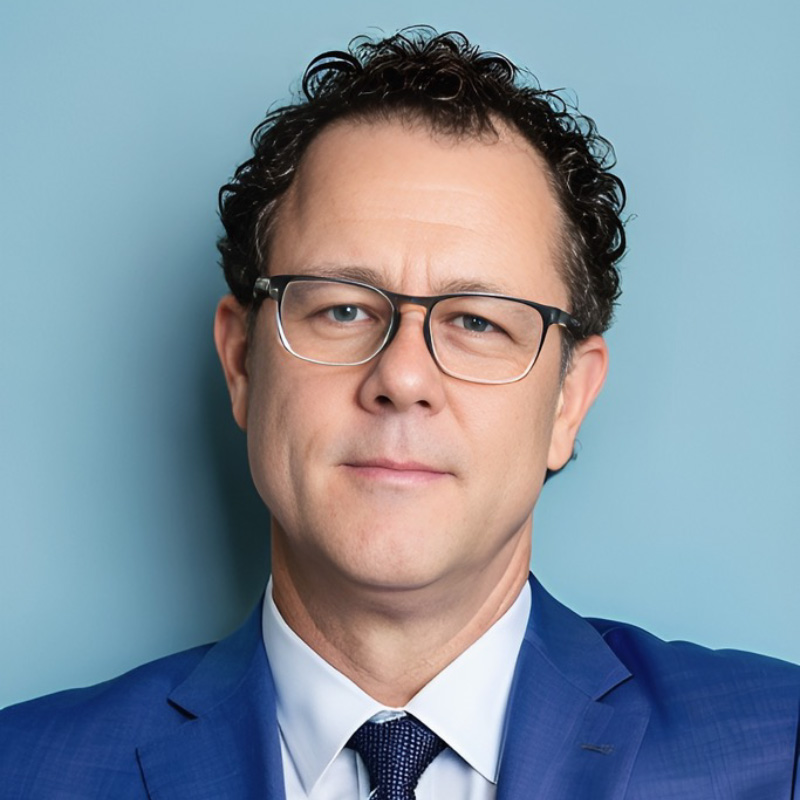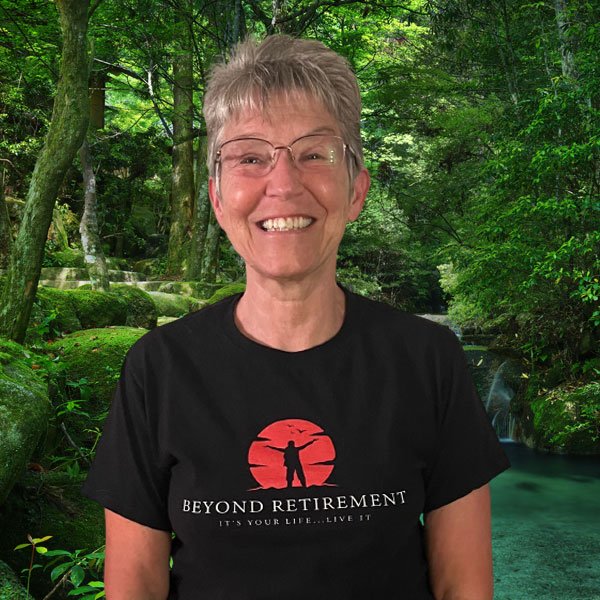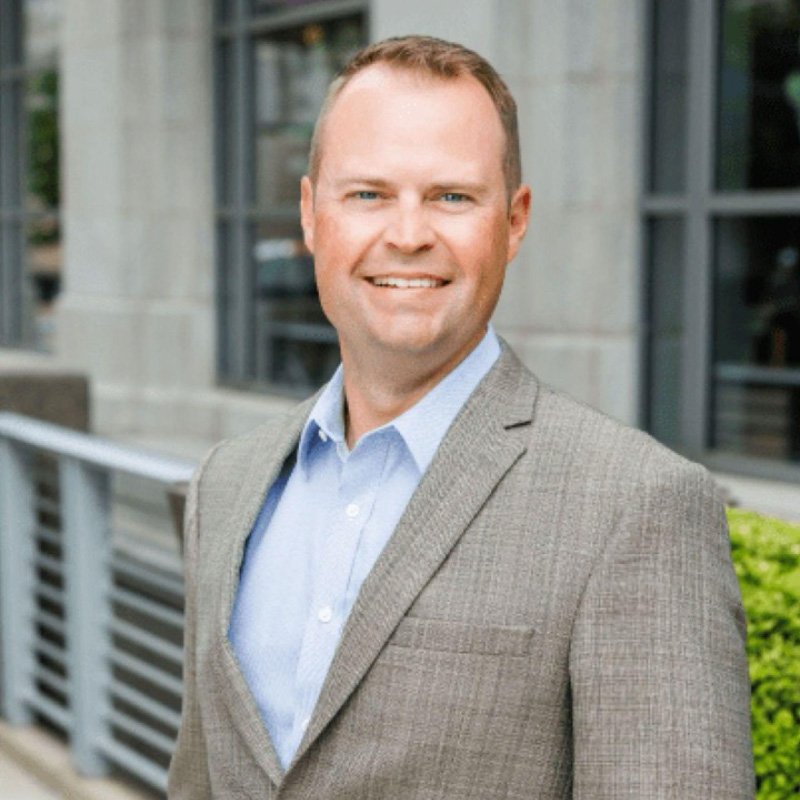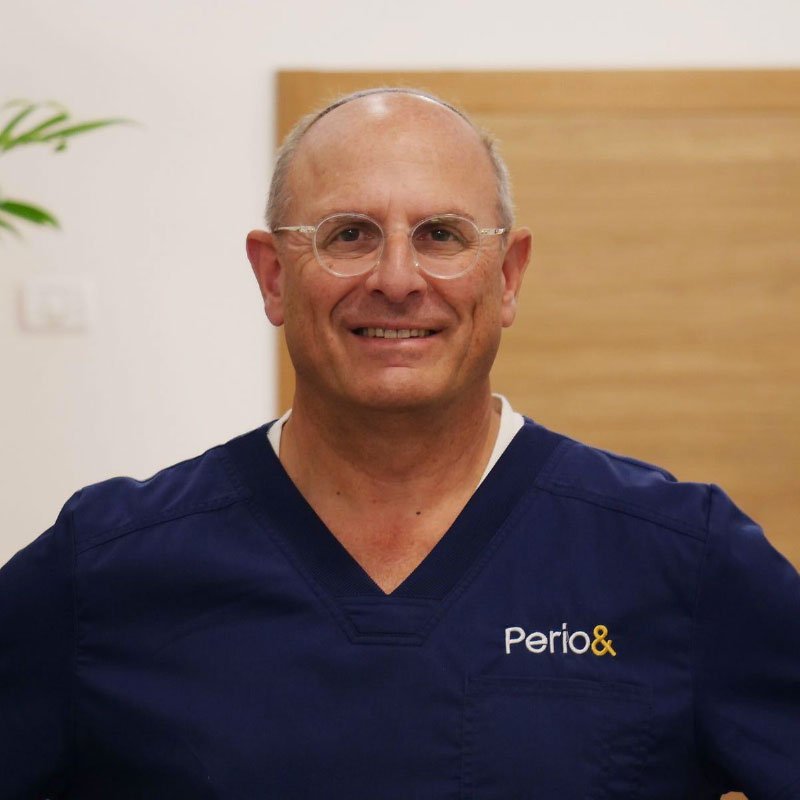#014
Share This:

“It's not the weight that you are when you have dementia, but it's the weight that you had during midlife. So doing diet and exercise changes, now, when you're younger, will help with that. But also, if you're already in the 55 and over, if you haven't had any symptoms of dementia, it's a great time to start. If you already have dementia, then you can still have it, the diet can help to slow the progression of it. So, it's really important, because we don't have any drugs on the market that can do that right now."
-Diandra from That Science Couple
Diandra from That Science Couple is a PhD candidate at the University of Wisconsin and health coach who researches the links between diet, dementia, and Alzheimer’s disease. This episode will give you an insider’s guide to why making dietary changes may give you the best shot to stop or slow brain-related decline, how you can help a loved one if you’re a caregiver for an Alzheimer's patient and how allergy testing, stress reduction, genetics and science-backed, evidence-based nutrition coaching can all play a vital role in brain health and aging.
Listen to the episode on Apple Podcasts, Spotify, Deezer, Podcast Addict, Stitcher, Google Podcasts, Amazon Music, Alexa Flash Briefing, iHeart, Acast or on your favorite podcast platform. You can watch the interview on YouTube here.
Brought to you by Prepare for Medicare – The Insider’s Guide book series. Sign up for the Prepare for Medicare Newsletter, an exclusive subscription-only newsletter that delivers the inside scoop to help you stay up-to-date with your Medicare insurance coverage, highlight Medicare news you can use, and reminders for important dates throughout the year. When you sign up, you’ll immediately gain access to seven FREE Medicare checklists.
Quotes:
“We used to think that Alzheimer's was only about the plaques, the amyloid beta and tau tangles, but actually we found out that there's a lot of mixed pathologies. So, people that will have some vascular components and then some of these typical amyloid beta or tau presentations, those pathologies for Alzheimer's. And so we know that the diet can actually work through the cardiovascular pathway, so it can help improve your heart. And then it also will help improve the blood flow in your brain as well."
-Diandra from That Science Couple
“I think that it's never too late, so I'll just put that out there. As long as you're on this Earth, every day is an opportunity to contribute to your own health. So that's my tagline, is that every day you wake up, you can choose, do I want to have that bacon double cheeseburger? Or do I want to have some light pasta dish or something? So it doesn't have to be all or nothing. And that's the great thing about the MIND diet is that you can just do pieces that are accessible to you. So you don't have to be perfect. And it's not a fad diet. It's not a "I'm just going to do this for six months to lose weight and then I'm going to go off of it." So if you do go down the plant-based route, a lot of times people do lose weight, but I say it's more how you feel and not so much focused on the scale."
-Diandra from That Science Couple
#014
Selected Link from the Episode:
MIND Diet - Mediterranean Intervention for Neurodegenerative Delay
Forks Over Knives (Documentary)
Hemochromatosis (Iron Overload)
Caffeine as a protective factor in dementia and Alzheimer's disease
Early-Onset Dementia and Alzheimer's Rates Grow for Younger American Adults
https://www.facebook.com/ThatScienceCouple/
https://twitter.com/science_couple
https://www.alz.org/alzheimers-dementia/what-is-alzheimers/younger-early-onset
Full Show Transcript:
00:00:00 / 00:46:00
LEGAL CONDITIONS:
Matt Feret/MF Media, LLC owns the copyright all content and transcripts of The Matt Feret Show, and themattferetshow.com with all rights reserved, as well as right of publicity. All rights reserved.
No part of this publication may be reproduced or transmitted in any form or by any means, electronic or mechanical, including photocopying, recording, or by any information storage and retrieval system without written permission of the publisher, except for the inclusion of brief quotations in a review. You are welcome to share the below transcript (up to 500 words) in media articles, on your personal website, in a non-commercial article or blog post, and/or on a personal social media account for non-commercial purposes, if you include attribution to “The Matt Feret Show” and link back to the themattferetshow.com website.
WHAT IS NOT ALLOWED: No one may copy any portion of the content or use Matt Feret’s name, image or likeness for any commercial purpose or use, including without limitation inclusion in any books, e-books, book summaries or synopses, or on a commercial website or social media site (e.g., Facebook, Twitter, Instagram, etc.) that offers or promotes your or another’s products or services.
DISCLAIMER: This publication is in no way sponsored, associated, authorized, approved, endorsed nor, in any way affiliated with any government agency, company, trademarked names, or other marks. Any such mention is for purpose of reference only. Any advice, generalized statistics, or opinions expressed are strictly those of the host and the guest. This publication, The Matt Feret Show nor The themattferetshow.com website is meant to replace the sage advice of healthcare, insurance, financial planning, accounting, or legal professionals. You are responsible for your financial decisions. It is your sole responsibility to independently evaluate the accuracy, correctness or completeness of the content, services, and products of, and associated with this publication. The thoughts and opinions expressed in this publication are those of the host and guest(s) only and are not the thoughts and opinions of any current or former employer of the host and guest(s) nor is this publication made by, on behalf of, or endorsed or approved by any current or former employer of the host and guest(s).
Matt Feret (00:02):
Hello everyone. This is Matt Feret, author of The Prepare for Medicare book series, and welcome to another episode of The Matt Feret Show, where I interview insiders and experts to help light a path to a successful retirement.
Come say hello at www.themattferetshow.com, for YouTube videos, show links, notes, websites referenced, quotable quotes, and the complete show transcript. Thanks in advance for liking, following, subscribing and rating the show everywhere you can listen and watch it. It really does help spread the word about The Matt Feret Show.
According to the Alzheimer's Association, over six million people over the age of 65, have some form of dementia. Caregivers of people with Alzheimer's or other dementias provided an estimated 16 billion hours of unpaid assistance last year. A contribution to the nation valued at over $271 billion. Early onset dementia and Alzheimer's disease is increasingly infecting the lives of a growing number of Americans under the age of 65 as well. Early onset Alzheimer's is an uncommon form of dementia and only about five to six percent of people with Alzheimer's disease develops symptoms before age 65. Yet that translates into anywhere between 300 and 600,000 people in the US. The number of people being diagnosed with early onset dementia is soaring.
My guest for this episode is a PhD candidate in nutritional sciences and is doing research looking at the links between diet, dementia, and Alzheimer's. Along with her husband, Diandra has a blog, That Science couple, where she also does evidence-based nutrition coaching, specializing in chronic disease prevention and management.
This episode we'll give you an insider's view into the latest links between diet, dementia, and Alzheimer's. Why making dietary changes may give you the best shot to stop or slow brain related decline. How you can help a loved one if you're a caregiver for an Alzheimer's patient. And how allergy testing, stress reduction, genetics and science backed evidence-based nutrition coaching can all play a vital role in brain health and aging. Enjoy.
Diandra, welcome to the show.
Diandra (02:28):
Hi Matt. Thanks for having me today.
Matt Feret (02:30):
I'm so glad you're here. So tell everybody what you do and how you help people, and how long you've been doing it.
Diandra (02:35):
Sure. I currently am a PhD student in nutritional sciences with a minor in population health. And my research at University of Wisconsin, Madison is working on Alzheimer's disease and diet as a mode of prevention. And what I do on the side is I write at That Science Couple. And so we've had our blog for about two years, and it basically came about from, we had friends and family members who knew we were both science majors and they would come and ask us all different types of questions. So they'd ask about nutrition, they'd ask about lifestyle. They'd just ask about random things like about COVID-19 and what should we do?
So we had a lot of people coming to us and we decided that, hey, we need to be able to put this out in the world. There's other people out there that could benefit from the same kind of information that they're asking us for. And so what I've also done on the side is, as I've been going through my PhD program, I've completed all my coursework. And so now I'm ready to do nutrition coaching.
Matt Feret (03:30):
Let's start with the first piece, Alzheimer's and diet. We can talk about the statistics or we can jump into what's the connection? And what's your research telling you? And make the connection there, talk about that.
Diandra (03:48):
My research is specifically on the MIND diet, so it's the Mediterranean-DASH Intervention for Neurodegenerative Delay, so they abbreviate it as MIND. Basically, it's a combination of the Mediterranean diet and then the DASH diet, which is the dietary approach is to stop hypertension. And so that was developed by the American Heart Association, in a goal of trying to reduce the risk of heart attacks. And so the combination of these two together, it's the first diet that's actually focused on mind health and everything like that.
And so it was created by Martha Clare Morris at Rush University. And one of the big things that they saw was that even if you had moderate compliance, so it's a checklist of 15 foods, and it gives you, here's 10 foods that you want to increase, and you want to have this minimum amount. And then there's five foods that are negative. So things like butter and pastries are on that negative side. You want to reduce those. And then-
Matt Feret (04:47):
Unfortunately.
Diandra (04:48):
Unfortunately, but if you have that minimum there, then even if you have a 50% compliance to this dietary plan, you can have a reduction in your Alzheimer's risk. And they saw up to 50% of people who were at risk with Alzheimer's, did not have those symptoms coming in. So that was more for the full compliance, and then moderate was about a 23% reduction in their risk of Alzheimer's. So that's really fascinating. And my new research project that I just got approved for my preliminary exam, which means that I'm just ready to start researching, is focusing on vascular dementia.
And so we used to think that Alzheimer's was only about the plaques, the amyloid beta and tau tangles, but actually we found out that there's a lot of mixed pathologies. So people that will have some vascular components and then some of these typical amyloid beta or tau presentations, those pathologies for Alzheimer's. And so we know that the diet can actually work through the cardiovascular pathway, so it can help improve your heart. And then it also will help improve the blood flow in your brain as well.
Matt Feret (06:05):
Oh, wow. Talk about, I don't know, let's go to, if I'm at risk because my parents or relatives or family members had Alzheimer's, let's start there first for that end of the angle. When is the right time to start and thinking about changing diet? When is too late? Is there such a thing as too late? And talk about, I don't know, let's just say risk/reward. Is there a 100% chance I'm going to get better or I'm going to stave off Alzheimer's? Or a 10% chance? I think that goes through a lot of people's minds. "Well, I know I could exercise more, but is that a really going to help?" I know, it's human nature-
Diandra (06:50):
What kind of reward?
Matt Feret (06:51):
Yeah. What's the reward for all this effort of changing my diet? And when is too late? And when do I do it? Maybe is probably the more succinct question I have.
Diandra (07:00):
So that's a great question. So in my research, we focus on late onset Alzheimer's, so that's, if you have dementia starting at 65 or later. And so the research that I've been working with for the vascular dementia has shown 25 years before. So if you're looking at 65, then they're saying starting at 40, if you start at 40 on this dietary changes, then you have the longest amount of time to reduce your risk of having any sort of dementia. So that's pretty interesting that there's a long term lead time with that. And one of the things that does increase your risk for dementia is BMI, so your body mass index. And so that is actually, in midlife. So in your 40s, in your 50s, that BMI is what would increase your risk. If you have a high BMI, so you're overweight or obese, then that will increase your risk for having dementia later on in life, when you actually usually lose weight.
And so it's not the weight that you are when you have dementia, but it's the weight that you had during midlife. So doing diet and exercise changes, now, when you're younger, will help with that. But also if you're already in the 55 and over, if you haven't had any symptoms of dementia, it's a great time to start. If you already have dementia, then you can still have it, the diet can help to slow the progression of it. So it's really important, because we don't have any drugs on the market that can do that right now. But if you can switch over your diet, so it's mostly plant-based. They recommend like a cup of blueberries a day, and then green leafy vegetables, so kale, spinach, arugula, bok choy, chard all those kinds up to six cups a day.
So the reason for that is the greens actually produce nitric oxide. And so when you have high levels of nitric oxide, that helps to dilate your blood vessels. And so you can get better blood flow, so it can bring down your blood pressure as well, so that's helpful. So there's a lot of things that you can do and at any age.
Matt Feret (09:17):
Let's say I'm in my 40s and 50s, and not yet 65, and I hear you, and I go, even if Alzheimer's or dementia isn't necessarily in my immediate family history, it's still probably a good idea for my own health and the potential on for that dementia and the onset of dementia and Alzheimer's. Is it me, or does it seem as if the diagnoses for early onset dementia, early onset Alzheimer's is increasing? Is that true? Or is that because we're checking for it earlier?
Diandra (09:57):
It may be more that we're just identifying it earlier, because with the late onset, it's the APOE gene, and it's copies of the E4 allele, that basically mean that you have impaired ability, its a cholesterol related molecule. And so your cholesterol's impaired. And so that adds and increases over time, and then you have more damage, more plaques, and then that can lead to the dementia as well. And so part of it is also how it flushes out. So you have the amyloid beta is a protein, and it accumulates in your brain, but as you sleep, it helps to drain it out. So it's only when you get those proteins that are kind of stuck there.
But then for the early onset, those typically are more genetically related. We know there's only one gene that's kind of leading the charge for the late onset, but for the early onset, there's like three or four different genes that are predicting that. And so part of it could be that our diets are worse. And so we're starting from the age of 16 eating a fast food diet, standard American diet, and so we have that long exposure. Versus if you didn't have that and you were eating healthy all your life, then when you got to 65, that could be where you're getting more of the genetic role rather than the environment.
Matt Feret (11:29):
Man, you just packed a lot of stuff in there. A lot of which seems to be out of my control or anyone else's control, except for diet, which as you noted starts at age 16. I mean, do you see any slow down or changes in American society that says we're getting better and moving towards thinking about these things as a part of our overall health and our healthcare system or are we still not doing it or at the very early stages?
Diandra (11:57):
I think it's more prevalent now than it was even 10 years ago. So there's more documentaries out there now that you can watch. One of our favorite ones was Forks Over Knives, and that one's on Netflix. And it's a gateway one for if you just want to learn about, they call it plant-based lifestyle or whole food plant-based. And so reversing diabetes, getting off insulin, getting off metformin, things like that, that can happen in midlife. So I think that it's more acceptable now to look at diet. Unfortunately, it's not translating into the restaurants.
So there is plant-based meat now in some of our fast food chains, which is a great option, but I say that's more of a transition food. So the plant-based meats are more for the environment than for your personal health. I think it is more prevalent now, eating healthier, and it's more accessible in certain areas. But then at the same time, there's still McDonald's every mile, so we're fighting against that as a nation.
Matt Feret (13:06):
So we talked a little bit about 40s and 50s and early onset. Let me move now to a number that's important for a lot of reasons, 65, you mentioned that number. 65 is kind that point in American society where, it's retirement, social security, Medicare. And so it's a unique number in the sense that it's uniquely American and you made mention of it. So let's just say 65 plus, knowing that there are vast differences between 65, 75, 85 and beyond. What are the dietary changes that you can make now, if you are approaching 65, that may be beneficial? Again, I'll ask the question. Is it too late? If I think I've only going to make it to 85 or 90? Do I do anything now or do I just keep eating my cheeseburgers and stay away from the kale?
Diandra (13:55):
I think that it's never too late, so I'll just put that out there. As long as you're on this Earth, every day is an opportunity to contribute to your own health. So that's my tagline, is that every day you wake up, you can choose, do I want to have that bacon double cheeseburger? Or do I want to have some light pasta dish or something? So it doesn't have to be all or nothing. And that's the great thing about the MIND diet is that you can just do pieces that are accessible to you. So you don't have to be perfect. And it's not a fad diet. It's not a, "I'm just going to do this for six months to lose weight and then I'm going to go off of it." So if you do go down the plant-based route, a lot of times people do lose weight, but I say it's more how you feel and not so much focused on the scale.
And so the reason for that is you do remove dairy. So almost all dairy should be removed from your diet. If you really like yogurt and you want to keep that in and you want to have one serving a day, then that's fine. Or with my client, I worked with, her I said, "Okay, what about one serving of cheese or one serving of dairy?" And the reason for that is to keep your saturated fat levels low. So you want it to be under 25 grams of saturate fat a day.
And so you can just do a quick Google search on the foods that you're eating, and then find out what's in it. If you're going to fast food, you can look it up there, or just in the grocery store, it'll be on the label. So that's a good start, I think. And then reducing red meat, honestly, red meat is not doing you any favors. So it can-
Matt Feret (15:40):
It tastes so good. It tastes so good.
Diandra (15:41):
It's good, but it can cause actually iron overload, which is hemochromatosis. And so basically you can only get rid of a certain amount of iron every day. And so if you eat too much, then it taxes your system. And so that's also not a good thing. So that's one of the things they say red meat is bad. And then also with the grilling of meat, so that's a big thing is you're not just... If you're sous viding it, then that's a little different, but if you're grilling it, then it creates these compounds called TMAO, trimethylamine-N-oxide and it's very damaging to your system. So I have some more about that in a blog post that... Let me see what it's called real quick, it's Alzheimer's disease is the power on your plate. So we can provide a link to that if you want to read more about it.
But, yeah, meat reduction, same thing with chicken as well. Chicken is also not really a health food, even though it's been touted as that. And then fish can be moderate. The higher up on the food chain that you eat with the fish, the more mercury they have in it, so that's also not a good thing. So actually sardines is one of the best fish to eat from that aspect, because they're only eating the algae and the kelp and they're not eating other fish. So it's avoiding that bio accumulation over time.
Matt Feret (17:14):
You know you're taking away everything I hold dear.
Diandra (17:17):
Yeah. Yeah.
Matt Feret (17:18):
Grilling various meat products and smoking various meat products all summer long, and a nice steak.
Diandra (17:25):
So what you can do is, I've heard some people will choose a once a month for that. So if you're making it a special occasion, it's a birthday, it's the 4th of July, it's some sort of holiday and you're making it so you are having your portion then, and you invite friends over and family over and say, "Hey, take home the leftovers with you guys." So I'm going to enjoy it now, but that doesn't mean that the holiday has to extend for the next week. So it doesn't have to be all or nothing. But it's more like Thanksgiving, I think of that, when we eat for a whole week, that same heavy fat food. It's mostly plant-based, but it's not good for us, and we know that.
Matt Feret (18:12):
I want to get into the broader dietary piece. But before I move on, I have one more question about, I think I have one more question about the over 65 crowd and Alzheimer's and dementia. So let's say I'm a caregiver. Let's say I've got a mom or a dad or a loved one over the age of 65, and they're suffering from various stages of dementia and/or Alzheimer's what do I do? What can I do to help? If it's still ways away from a pharmaceutical therapy regimen here, and you're saying diet is or could be the answer. What do I do now? How can I help my mom? Or how can I help my dad? Is there anything I can do with their diet, because I'm a caregiver of theirs, to help them?
Diandra (19:00):
Of course, so the foods that you would want to emphasize would be green, leafy vegetables. So I had already listed those. You also want to do whole grain, so simple oatmeal in the morning. If you just visit them once a day and you can do overnight oats in the fridge, you just put a half cup of oatmeal, you can put blueberries in there, so half cup to a cup a day. And then you can put in a plant-based milk that you like, so soy milk, almond milk, oat milk, anything like that. And then you just fill that up to cover all the oats, and then you let that sit overnight. So in the morning they would be able to go and grab it, and it's already ready.
So that's one of the ones that is great for working people, too. If you're on the run, you need to go, you don't have time to sit there and make your breakfast in the morning, so that's a simple one.
Matt Feret (19:56):
Does the diet that we've talked about help slow it, if you've already got it? Or is there-
Diandra (20:02):
Yes.
Matt Feret (20:02):
... not enough evidence?
Diandra (20:05):
So there is some evidence that it can help slow it. And there's actually research being done. It's by the [inaudible 00:20:16] so it's this couple, their MDs and they're researchers, and they're out in California, and they're actually working to see if diet can reverse Alzheimer's disease. So that's in the very early stages clinical trials, so we won't find out about that for a couple years. But the idea is that if you make these changes now you can at least slow that. So coffee is good, actually. So there's been a lot of research that shows that the more cups of coffee a day that you drink, the less Alzheimer's risk you have.
Matt Feret (20:50):
Oh, thank God.
Diandra (20:52):
So I think it's because it dilates the blood vessels-
Matt Feret (20:54):
Yeah, no.
Diandra (20:55):
... so we're getting that blood flow-
Matt Feret (20:57):
Thank gosh.
Diandra (20:57):
... and everything.
Matt Feret (20:58):
I mean, I'm coffee...
Diandra (21:01):
All the time. All the time.
Matt Feret (21:02):
You wouldn't even... If it were illegal, I'd be in big trouble. Let's put it that way. But coffee's good. So I'm summarizing and tell me where I'm wrong, because I'm often wrong. When you're in your 40s and 50s, it's not just to lose weight or feel better, but it's also going to have pretty significant impact on your propensity, your personal propensity to develop any type of cognitive issue or any type of staving off cognitive decline, true or false?
Diandra (21:31):
True. True. Yes.
Matt Feret (21:33):
When I'm over 65 or pick a random 65, 70, 67, whatever, and I've been diagnosed with some sort of cognitive decline or just natural aging. I didn't even talk about that. The natural aging process, does it help? It does help and it can impact, but there are studies being done. So it's a TBD, but likely, is that true?
Diandra (21:55):
True.
Matt Feret (21:56):
And if I'm a caregiver, I should still be doing this even though my mom or dad or loved one has dementia or Alzheimer's, because it could actually slow the decline. True or false?
Diandra (22:10):
True. True.
Matt Feret (22:12):
That's fascinating.
Diandra (22:14):
And so developing that diet around, basically, 90% plants, you can't go wrong. And the whole foods as much as possible. I know sometimes we do need help from processed foods. So you can get the pre-chopped veggies. I have a book club that I do with my church friends and their average age is over 65, and so I teach them these cheats. That's like, do you have a blender? If you have a blender, that's great. Then you can put two to three cups of spinach in it, then you can put in some blueberries, a banana, flaxseed is a great source of omega-3s, so they say one to two tablespoons a day for that, and then water and blend it up. And you're good. So it's just like, what can you integrate into your everyday life and make it a habit?
And then if you decide that you like fish, if you're taking care of a parent who has Alzheimer's, what is their favorite food? Don't take that away from them. But what can you do to integrate healthy snacks instead? So you want them to still have semblance of themselves, and it's a tough time and they're losing memories of different things. So if there is one thing that they really enjoy, you may even be able to tweak the recipe a little bit.
So I talk with my friend with the diabetes about this of, "Well, instead of milk in that recipe, can you put the plant-based? And instead of butter, for baking, you can do apple sauce instead of oil. So for cornbread or cakes and things like that." So it's, what can you change to make it slightly better than what it was before? And they probably won't even notice the flavor, honestly.
Matt Feret (24:11):
So you've brought this up a number of times in the course of our time together, and I want to dig a little deeper, you're a PhD candidate, a lot of research around Alzheimer's and diet and dementia, and you've turned this into, or you're turning this into health coaching, actually, practical application of your research, which I think is really unique. Tell me the history and background in health coaching, and why is it... It seems to me it's emerging, it's new, we've had baseball coaches and basketball coaches, and even now personal trainers for a while now. Talk to me about health coaching and this overall piece around wellness and what you've seen and how to get into it.
Diandra (24:53):
Sure. I do agree that health coaching is kind of a newer field. I've seen, in the past, it would originate for people who have severe chronic illnesses and need help, or if they just want a healthier lifestyle overall. So it's kind of a branch off of a nutritionist, actually. And so when I was looking to see, I like my research, I really enjoy it, but I want to actually help people one-on-one and I want to make changes in their lives. So where could I do that? And so nutritionist, unfortunately, if you're a registered dietician, typically, they only have a max of an hour with a patient or a client. And so you have to go through your whole history, and then what you're eating, and then they give you a handout that says, this is what you should eat from now on.
And so there's not really much follow up. There's not much engagement. And so a lot of the accountability is on the individual. So there's not really that relationship back and forth. And so what I found with health coaching is that you can actually build that relationship, that I will eat healthy for myself, but I also have someone who's going to hold me accountable to that. So if I am not monitoring what I'm eating, if I am not making my own goals happen, then someone's going to tell me, "Hey, why did that happen? Why are you not doing this? And how can we work through that barrier that you have to be able to make progress?"
Matt Feret (26:27):
How do I know when I need a health coach?
Diandra (26:30):
I think you need a health coach if you've tried it on your own and it doesn't work. So if you're potentially a fad dieter, and you've gone through these cycles, and no matter how much information you have, you just can't get the results that you want. Or like I said earlier with the food allergies, that's a very complicated problem, because your allergies can happen as soon as a half an hour after you eat something up to 24 hours. So that's really hard to decipher, well, was it this food or was it that food? And then where is this coming from?
So I think if you're been struggling for a while with your diet, and you just feel like subpar, your energy's low, you're crashing in the afternoons, things like that, or you're concerned about a chronic disease. So if you have heart disease in your family, then maybe it's not the genetics necessarily that are passed down that are causing heart disease, but it could be the diet that you've inherited, the cultures that you've inherited.
Matt Feret (27:35):
How do I get started? You said allergies, how do I know if I've got an allergy? Do you do a test? I was thinking-
Diandra (27:45):
Mm-hmm.
Matt Feret (27:45):
... I got tested for allergies once. And all I can remember is somebody poked me with a needle a bunch of times on my arm and up my shoulder. Is that what I'm looking forward too? Or...
Diandra (27:54):
Yeah. So that kind of testing, so you can do blood work or the skin prick test. So that is actually the first layer of allergy testing. And so I would say go to a certified allergist and get this done rather than doing the at home kits. And the thing is for that, is the at home kits, they look at different components, so there's IgG and there's IgE. And so basically they're looking at the form that says, this could potentially be an allergy, but is not established as an allergy. So I actually had food allergies myself and I went to an allergist, and I got all the things done and they're like, "You're allergic to basically everything." And that was very-
Matt Feret (28:40):
That's not great news.
Diandra (28:41):
Yeah, not good news. And then I said, I asked him, I was like, "So I've heard the people have allergies that go away. And so how do I make that happen?" And he said, "Honestly, if I knew that I wouldn't be here, and I would have a Nobel prize." So he basically suggested to me that through the process of what you do is you keep a food diary, you write down your symptoms, and you write down the foods and when you ate them, and then you look and try to decipher. So I realize that this is difficult for people who maybe you don't have the time to figure that out, or you just don't have that analytical intuition to see, well, is it the bacon that's causing me allergies? Or is it the kale? Maybe it's the kale, and I shouldn't eat that. I mean, there's some people that it may not agree with, but it's filtering things through.
And so I know foods that have high histamine content. So that's something that we can look at. Histamines are what causes your seasonal allergies typically, and so there's also a cross reactivity of during the season that it is, you may be allergic to certain foods, because you have the pollen outside. And so it's cool. So my program is all evidence based. So I look through the recent literature and I look at all the data that you're providing me. And so this is the premium service, which I would go through. And for three months we track everything that you eat, but we don't track calories.
So I think that's a really important part is that we're just trying to see where you are, where you're going. And then each session that I have, we do a little learning lesson, where it's a half an hour, and we talk about one of the goals that you have, and then some science that is behind that. And I also let my clients choose their own goals. So I say, "You choose the smart goal that you want for the next session." And so that's something that's, it's going to be specific, measurable, actionable, realistic, and timely. So it's-
Matt Feret (30:56):
Smart goals, that's-
Diandra (30:57):
Smart goals.
Matt Feret (30:58):
... I picked up on that S-M-A-R-T. Nice.
Diandra (31:01):
So that puts the power in the client's hands. So it's them saying, "This is what I want to do." If I want to have a smoothie every day, til we meet next, that would be an easy goal. And I want to cut down on drinking and I want to have only drinks on the weekends with friends. There's different, things like that can be done. And so I think it's very good that I'm teaching people, I'm giving them the tools. And I want you to leave me knowing that, if I have allergic reactions, I can figure out what caused them. So I actually even train them on how to look through your own food diary at the end, and point back to what might have caused it.
Matt Feret (31:47):
So let's say I'm interested in a health coach or a nutrition coach, how do I get started? What do I have to do first? What types of research should I be doing? Is this just Googling health coach? Or should I be looking for an association? Is there a website I need to look at to figure out certified whatever health coaches in my area? I know I'm not doing it justice, but you get my point.
Diandra (32:13):
Yeah. So there's a couple different avenues that you can go. So if you think that you just need a nutritionist to give you a handout, then you can go to the nutrition, I'm not really sure what the specific name is, but there's certified registered dietician. So if you see-
Matt Feret (32:32):
I'll put it on the website.
Diandra (32:33):
... the registered dietician by the name, then that's going to be someone who's going to give you that hour, and say, "Okay, come back in six months," thing. Then if you want someone who's going to be... There are some associations that work with gyms those ones may be like, let's see... Oh, I'm trying to think of what it is. I can't remember off the top of my head. But they'll-
Matt Feret (32:58):
That's okay. I can look them up and put them on the website.
Diandra (33:00):
... give you meal plans. So there's the other one that's like, "These are the smoothies, the powders that you should have," so there's that aspect. So mine is the separate from that. So it's not just a quick one and done thing. I'm not providing you food to eat, but I'm teaching you the lifestyle that you can take from there. One of the things I say, as far as if you wanted to work with me as an introduction, I actually have an eat for health checklist. And so that's on my website, and it's for free. If you become a subscriber, then it'll send an email that gives you this tracker. And so, basically, you can just go through a month of tracking and it gives you seven foods that you should eat and that will help to promote health for you.
So it doesn't matter where you start and they're very basic kind of things. And so before I take on a new client, I suggest for them to try that out first, because a big portion of what I do is tracking what your food is. So I say, "What gets measured gets managed." So it's the same thing with finances. If you're not looking at your finances and you're not watching it, then it can get out control easily. And same thing with food. You need to be honest with yourself. What am I eating? And is this okay? And is this what I want? And what are the side effects of that?
So if you have extra weight, have less energy, have high inflammation, things like that, most likely they are tied to what you're eating, but I can also work with people on other lifestyle factors too, so exercise and sleep and stress reduction. So it's more of the whole package, but, like I said, everything that I'm going to have is you're coming to me because you want the science behind it, because you want that explanation. If you want the fad diet, the lose weight in 10 days, then I'm not the person for you. And you can probably just look on Instagram for that. But I'm the one that's going to work with you for, like I said, either a three month period or a six month period to get your life on track.
Matt Feret (35:15):
You mentioned something earlier in the talk, evidence-based nutrition coaching.
Diandra (35:23):
Yes.
Matt Feret (35:24):
Explain, again-
Diandra (35:26):
Yes.
Matt Feret (35:26):
... what that means.
Diandra (35:27):
Yes. So evidence-based nutrition coaching means that I'm backing every decision up with the literature, the scientific literature. So if your concern is heart disease, then I'm looking at what are the foods that are proven in clinical trials to reverse heart disease? I'm going to give you specific criteria. So a lot of people will just say, "Eat more vegetables," which is great, but I can tell you that, "You should eat three to four servings of vegetables a day, and you should have three servings of kale a day, and that we need your cholesterol to be below 150 total cholesterol, so that you have reduced your risk of having a heart attack."
So it's taking the science, the what's currently out there in the literature, and applying that to real life. And the thing is that, unfortunately, when you go to your physician, the medical establishment is typically between 10 to 20 years behind where the research is. And so I say, "That's not good enough. I want to use that information now to help people now." And the thing is, there's very little side effects from going plant-based or shifting in that direction. So you may become more regular, because you have increased fiber. You may have more energy, you may need less medication. So in that case, you got to work with your doctor to say, "I'm changing my diet. I need the blood work to be measured in six weeks."
And so I can even review blood work with people as well. So I'm using the science, using the observations, and then going for what is your goal? And what things do I know can help to promote you in that direction that you want to go in?
Matt Feret (37:17):
So let's say I'm ready, let's say I'd like to lose some weight. Let's say-
Diandra (37:22):
All right.
Matt Feret (37:23):
... I do have Alzheimer's or dementia in my family history or heart disease. And I'm ready. If I'm ready, and that's obviously the very first decision, then take me through what those steps look like, and what that three or six month engagement looks like, as if I were a client.
Diandra (37:42):
Sure. So for all potential clients, I give a free clarity call. And so we basically just sit down and have a conversation of what are your goals? What is your number one concern? Because we can only cover so many things. So the premium service is eight sessions, and then the monthly one is six sessions. And so what I do is I will, based on what you tell me, so what your concern is for Alzheimer's, I can pick out specific topics. And so I'll specify, I'll put six topics on the board of foods and different things that will help to prevent what your concern is. So helping you, how to integrate these dietary and lifestyle factors.
So maybe one week is about exercise. And one week is about mental clarity, because... So for people whose diet doesn't influence their dementia risk, they can also have where they're cognitively resilient, and they basically created so many different neurons and connections in their brain that as some atrophy, so they'll have the signs clinically of Alzheimer's, but they're not showing dementia. And so that's also a really interesting component. There was a nun study, and they showed that when these nuns passed away, they donate their brains to science, and they had signs of dementia. They had the tau tangles and the plaques, but they were not showing it at all. So it was really, really interesting to see that they're giving to other people, their repetitive nature of their life and the simplification, that is what created this resilience. And so I think that's really fascinating as well.
Matt Feret (39:36):
It is.
Diandra (39:39):
So I would pick these topics, so we'll pick six. And then what I do is I leave two sessions that are open at the end. And so that says, as we're going through life together, six months is an extended period of time, something may come up, that's a new concern to you that you didn't know initially. And so I say that we co-create those last two sessions. So that's things that you think of as we're going through the program, then we can add a little segment, and I'll do the research and add that for you.
And then every session is about an hour long. And so the first part is that dietary intake. So for everyone coming into my program for the premium service, I request that you do a dietary intake for the first month, at least. And so I'll have you track your food, and then send that over to me. And then I'll go through and I'll look for any patterns and say, "Where can we improve? What are you missing?" And so we're doing this with an app that doesn't count calories, like I said before, but we'll go through and just identify areas where we can improve.
And then, so each week you make those smart goals based off of the learning session. So the learning session could be introducing like fiber filled foods. So how do we get those whole grains in more? And where in your diet can we add them? So that would be an example. And then at the end you would set your smart goal saying that "I want to eat oatmeal every day, and so this is my goal. So I'm replacing my old breakfast with oatmeal in the morning. And then I want to try to incorporate brown rice, because I used to eat white rice." And so it's removing some of the extra nutrients when they do that kind of polishing to make it white rice. And so we basically would go through that. That would be the premium service.
And then the six month coaching is more for people who are highly motivated. "I can do this on my own, but I just need a little nudge in the right direction, and that kind of accountability partner." So for those, I do more of the checklist format, because I know that you probably already have everything under control and you just need to know what the goal is. And so I think it's really interesting, I've had clients, where we co-create that checklist together too. So if you want to go on a bike ride every other day for this week, then that's something that we can add to that. So it doesn't have to just be nutrition things on the checklist, but it can also be lifestyle factors as well.
So I think that's a really interesting thing and that one's a little bit more affordable of a program. So it's a lower barrier to entry. And I think that in six months you can make a big difference in your life by going through something like this.
Matt Feret (42:34):
I mean, this has been fascinating. I know we could talk for hours about this. It's the blending of science and academia with practical application and health coaching, this emerging field. What questions should I have asked that I didn't?
Diandra (42:48):
What kind of blood work should you do to make sure that you're having the sufficient vitamins? And so for one big vitamin that is of concern for people who are over 65 is B12. And so this is the one that if you have low levels in it, then you'll have dementia like symptoms. So it's not actually a full dementia, but you'll have some cognitive decline and impairment. And so actually what happens is B12 is found in animal products. So your meat, your dairy, your cheese, and it used to be in the soil. So we used to get it from vegetables, but it's not as prevalent now. So if you're plant based, then you need to supplement with that once a week. And it's only like 50 micrograms. So it's a very small dose that you need.
But then, if you're still eating those animal products, you're getting the source. But as you age, when you're hitting around that 65, there's another enzyme that you produce, which is called the intrinsic factor. And so it actually binds to the B12 in your stomach, and is what helps you to absorb it, so that declines over time and as we age. So for people who are in that higher age group, you would just want to get your B12 levels checked, and you can either take that simple supplement once a week, or you can get an injection every six months that will bring you up. And in a matter of months, those dementia signs will go away. So I think that's really cool, and really promising that's a low hanging fruit. It's a simple blood work that anyone can get done.
Matt Feret (44:33):
That's phenomenal. Thank you for bringing both of those up.
Diandra (44:36):
Yeah, of course. So I think those were the big things I wanted to talk about today.
Matt Feret (44:43):
Well, thank you. Tell everyone how to find you on the internet.
Diandra (44:46):
Sure. So I'm on Twitter is where I'm most active. So we're at Science Couple and then we're also on Facebook, so just look for That Science Couple on Facebook, and we're on Instagram occasionally, so that's some science couple over there. And then our blog, of course, is That Science Couple. So it made it easy that they're all linked together. And so you can go ahead and sign up for our mailing list. Again, we have those free downloads for there as well. And then if you just have any questions or are interested in any of the coaching services, then on our Facebook page, you can send us a message and it'll go through some pre-screener questions that will kind of filter you into the two different programs that we have as an offer. And then I can set up a call from there.
Matt Feret (45:34):
Okay. So if I'm interested in the health coaching, and this is the evidence-based nutrition coaching-
Diandra (45:40):
Yes.
Matt Feret (45:41):
... Facebook is where I should go and find you?
Diandra (45:43):
Yes. Yes. Yes. And there is a more in-depth explanation of the services I offer on our blog as well, our website.
Matt Feret (45:53):
Thank you so much for your time today. This has been great.
Diandra (45:56):
Yeah. Thank you so much, Matt, for having me. This has been a great conversation.
Matt Feret (46:00):
My thanks to Diandra for a great show. Make sure to check your website out at thatsciencecouple.com for one-on-one or group nutrition coaching. Check out The Matt Feret Show website at www.themattferetshow.com. And, of course, please subscribe to the podcast on your podcast platform of choice. Until next time to your wealth, wisdom, and wellness, I'm Matt Feret, and thanks for tuning in.
The Matt Feret Show, related content, publications, and MF Media, LLC is in no way associated, endorsed, or authorized by any governmental agency, including the Social Security Administration, the Department of Health and Human Services, or the centers for Medicare and Medicaid services. The Matt Feret Show is in no way associated with, authorized, approved, endorsed, nor in any way, affiliated with any company, trademark names, or other marks mentioned or referenced in or on The Matt Feret show.
Any such mention is for purpose of reference only. Any advice, generalized statistics, or opinions expressed are strictly those of the host and guests of The Matt Feret Show. Although every effort has been made to ensure the contents of The Matt Feret Show and related content are correct and complete, laws and regulations change quickly and often. The ideas and opinions expressed on The Matt Feret Show aren't meant to replace the sage advice of healthcare, insurance, financial planning, accounting, or legal professionals.
You are responsible for your financial decisions. It is your sole responsibility to independently evaluate the accuracy, correctness, or completeness of the content, services, and products of and associated with The Matt Feret Show, MF Media, LLC, and any related content publications. The thoughts and opinions expressed on The Matt Feret Show are those of the host and The Matt Feret Show guests only, and are not the thoughts and opinions of any current or former employer of the host or guests of The Matt Feret Show. Nor is The Matt Feret Show made by, on behalf of, or endorsed, or approved by any current or former employer of the host or guests of The Matt Feret Show.


